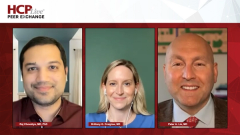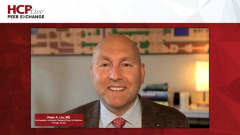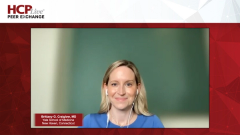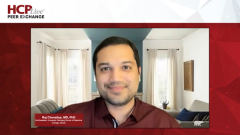
Nonpharmacological Approaches to Treat Pediatric Atopic Dermatitis
Dr Brittany G. Craiglow provides an overview of her approach to use of nonpharmacological agents in the treatment of her pediatric patients with atopic dermatitis.
Episodes in this series

Raj Chovatiya, MD, PhD: I promised that we would get to some of those nonpharmacological approaches, and Peter broke it down beautifully. I toss it back to you, Britt. Maybe you can take us through one of your clinical encounters. What are some of the lifestyle modifications that you like to talk about with your children and your caregivers that really can help to manage symptoms, flares, and how do you incorporate that as part of treatment?
Brittany G. Craiglow, MD: During the first visit I spend a lot of time talking about what’s happening, kind of looking back. I don’t do all the 5 pillars like you, Dr Lio. I heard Raj ask you that question, and I thought, wow, that answer is way better than mine. I talk about their dysfunction and the immune dysregulation because I think it is important for our families to understand why we’re asking them to do what we’re asking them to do. Then explaining that all this gentle skincare stuff is all aimed at the barrier, so these things aren’t necessarily going to fix your eczema, but they may keep it dampened down. Once we get rid of the inflammation, it may help keep you from flaring. My method of gentle skincare is all about boring is better, and less is more. I have so many families where there’s this push now for organic and all-natural, and then you look at the ingredient list, and they’re like rubbing all these plants on their skin. As you were saying about food, you don’t want to be dismissive. I say I understand the urge to want to do these natural and organic things, but remember, poison ivy is natural, right? And so, Johnny’s skin barrier isn’t going tolerate these things as well. We need to use really bland things so that we’re not irritating the skin.
We are making sure that they’re moisturizing and minimizing soap. Usually I say no soap, especially in young children, unless they’re straight up dirty. If you do it, use a soap-free cleanser, do it at the end of the bath, rinse him off, get him out. Have him apply moisturizer to damp skin, I think that’s also useful, just pat him dry. That helps him get in the routine, too. I think a lot of this stuff is about routine. Not adding a bunch of stuff to the laundry. All of these things that we talk about. I have a handout with products that I recommend. Again, I tell them this isn’t going to fix things, but this is going to help. Then when they come back, and maybe if they’re not better, then I don’t have to be like, “Well, wait. What moisturizer are you using?” So, everyone has the same slate to start with. Then, obviously, we talk about medical therapies.
Raj Chovatiya, MD, PhD: I like that. I think this idea of trying to simplify things by giving a handout to empower the patient or caregiver is huge. But even something as simple as, for a while I used to talk about non soap-based cleansers. I remember people saying, “What are you talking about? What’s a non soap-based cleanser?” Even things that seem straightforward or simple to us, sometimes are a little more complex.
Transcript Edited for Clarity
Newsletter
Access practical, evidence-based guidance to support better care for our youngest patients. Join our email list for the latest clinical updates.





